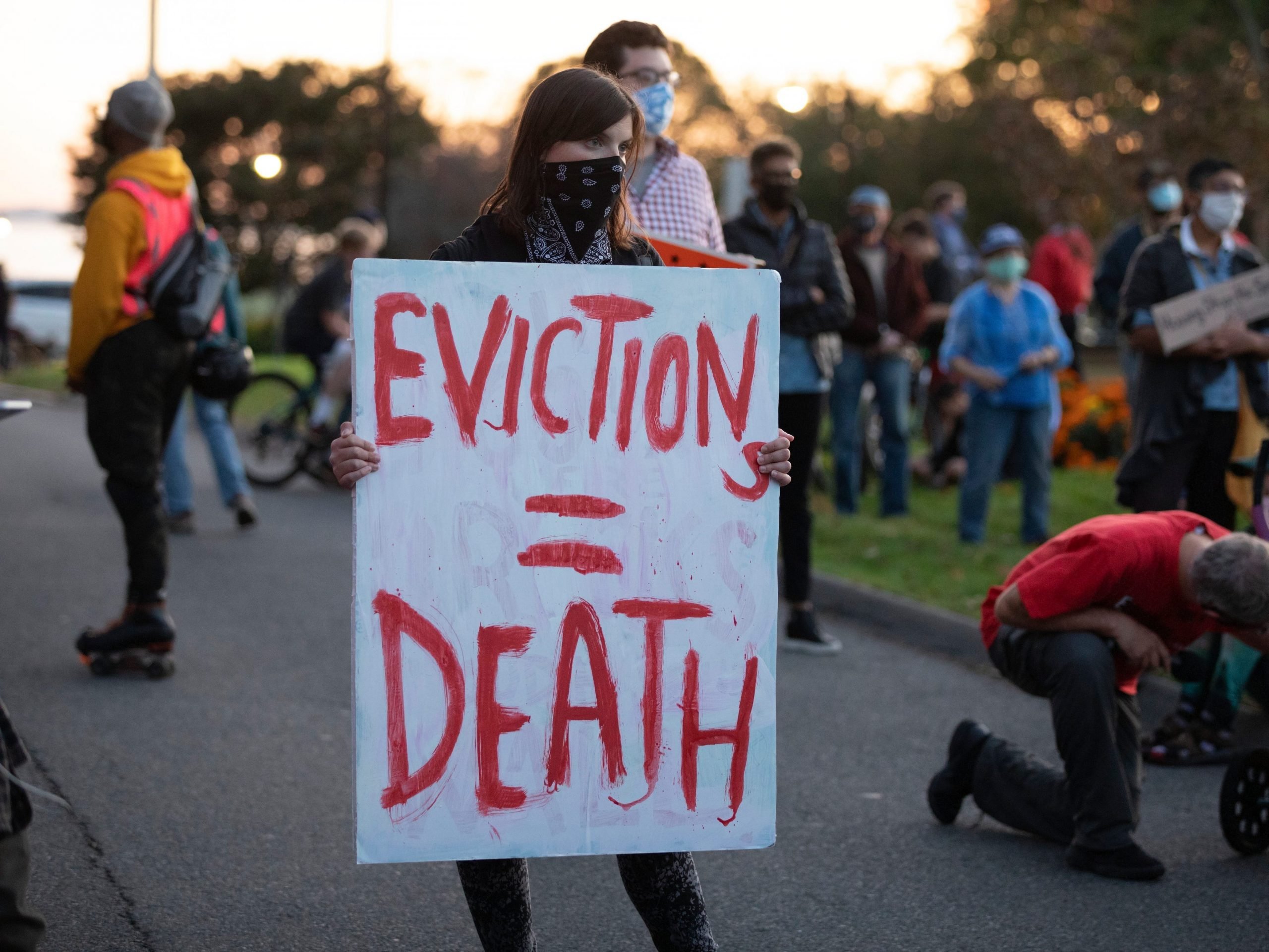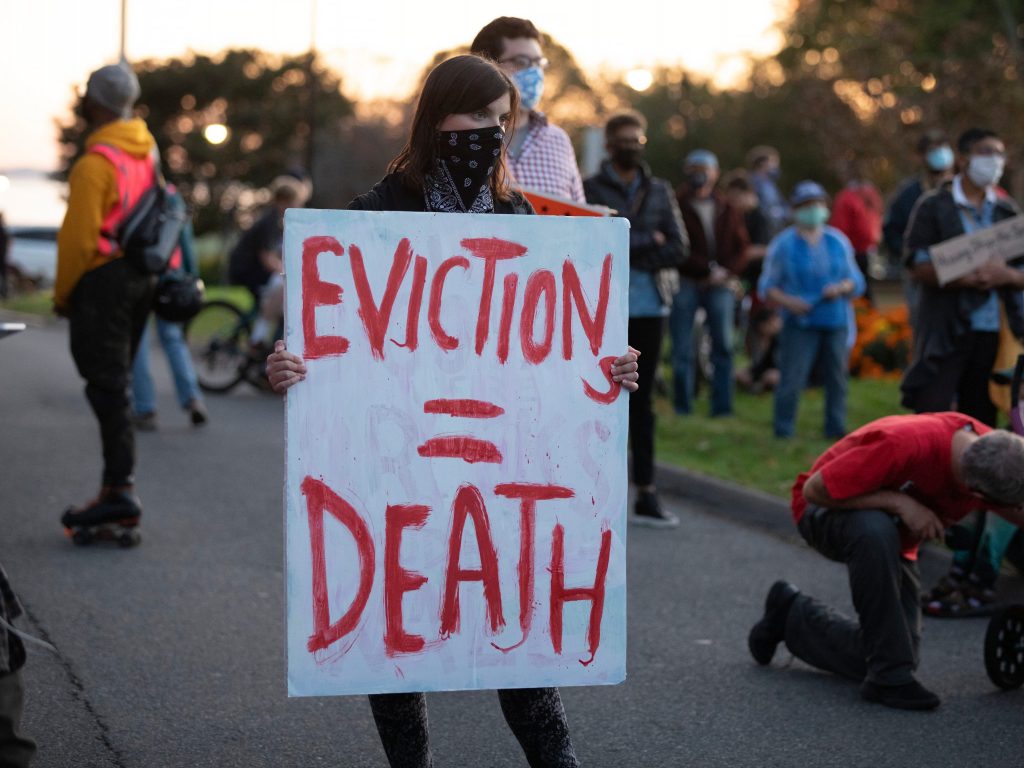
Michael Dwyer/AP Photo
- A federal judge has temporarily kept the CDC's eviction ban in place to prevent COVID-19 related deaths.
- The same judge had ruled earlier this month to strike down the CDC's ban as unconstitutional.
- Tenants are increasingly at risk of eviction as a growing number of states are ruling against the nationwide ban.
- See more stories on Insider's business page.
In January, the Centers for Disease Control and Prevention (CDC) extended the eviction moratorium through June 30 to protect tenants who cannot keep up with rent payments during the pandemic.
But an increasing number of courts are ruling the ban unconstitutional, and as the Biden administration works to keep them in place, COVID-19 health concerns are emerging as the last thing standing between renters and eviction.
US District Judge Dabney Friedrich was the first judge to strike down the CDC's eviction ban nationwide, earlier this month, saying the agency had overstepped its authority and can't legally impose a nationwide moratorium. But last week, Friedrich issued an order keeping the ban in place for now.
Friedrich's reason: She agreed with the Department of Health and Human Services' projections that lifting the moratorium would amount to 433,000 additional cases of COVID-19, and the government's argument that thousands of deaths could be attributed to overruling the ban.
"The court remains mindful that landlords across the country have incurred substantial economic hardships as a result of the CDC's nationwide moratorium on evictions," Friedrich wrote in the ruling. "The longer the moratorium remains in effect, the more these hardships will be exacerbated. Even so, given the public health consequences cited by the CDC, a stay is warranted."
But that stay won't last forever, she warned later in the ruling, writing that "there is not a substantial likelihood the Department will succeed on appeal."
A race against when the stay gets lifted
Since the eviction ban extension was implemented, multiple landlords have begun filing lawsuits questioning its legality, with courts in Texas, Ohio, and Tennessee so far ruling the ban unconstitutional. These rulings come at a time when the Treasury Department still has $50 billion in emergency aid to give to renters, but the Department needs to get the funds to renters quickly before the ban lifts and they're at risk of eviction.
That's why the Treasury Department issued new rules following Friedrich's ruling meant to make it easier for tenants to access emergency aid, which included simplified applications and futher assistance for tenants, in an effort to get the money out before evictions restart.
The Alabama Association of Realtors, which sued to challenge the moratorium in Friedrich's case, argued landlords will lose $13.8 billion to $19 billion each month in unpaid rent as as a result of the moratorium. Landlords and housing organizations have been making this argument since the ban was implemented.
For example, Josh Kahane, the attorney for the group of landlords in Tennessee who sued the CDC, said in a statement that the state's ruling the ban unconstitutional "puts an immediate end to the serious and unlawful infringement on constitutional standards and fundamentally protected rights."
However, some lawmakers and advocates are concerned with the implications of overruling the eviction ban and want to ensure that renters remain protected. Insider reported on April 26 that Washington became the first state to ensure that if its residents do get evicted, they will have access to legal aid.
"In America, 5% or less of tenants have access to a lawyer in eviction proceedings, and that is what is making this whole situation such a problem," John Pollock, coordinator of the advocacy group National Coalition for a Civil Right to Counsel, told Insider. "If every tenant had a lawyer, the landlords would not be trying to do half of the things they're doing."
And Rep. Maxine Waters of California questioned Treasury Secretary Janet Yellen over the state-court rulings at a hearing in March, and said she wants the Treasury Department to look into how to "straighten out this confusion and to help stabilize this rental assistance."
New York extended its own eviction ban through August on Tuesday, but CDC has not yet commented on whether the nationwide eviction ban will be extended past June.
